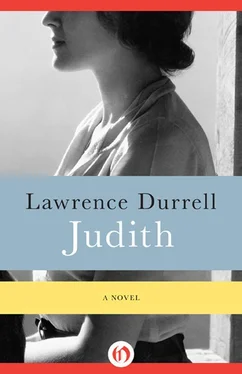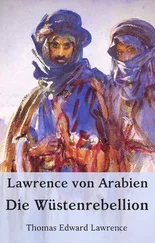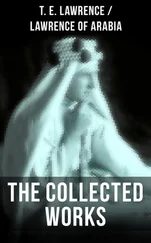However, in the final version of Judith , one element just before the anticipated Arab attack confuses the reader, since it places one event just before another, which, in strict chronology, it should succeed. I have therefore transposed chapters 26 and 27 in order to maintain the chronological unfolding of events.
Another writer who studied the Palestine crisis in depth was Leon Uris, whose novel Exodus (1958) predates the earliest drafts of Judith by four years, and which was filmed by MGM in 1960. There is no evidence that Durrell was familiar with either the book or the film; the fact that the same note is struck in both books indicates their authors’ familiarity with the commonplaces of the situation: ships landing illegal immigrants, people necessary to the Zionist cause being concealed in crates, gun-running (and the British attempts to prevent such activities) and the importance of oil as an economic necessity. The action of some refugees, on reaching land, to kiss the sacred ground, appears in both novels; the close childhood relationship of Aaron and Daud is also prefigured in a Jewish — Arab friendship in Exodus , but with a happier outcome.
Exodus , which is based on an actual incident, also puts the difficulty of the Jewish task firmly before the reader: ‘Some people are out to resurrect a nation that has been dead for two thousand years’. 65Uris reminds us that ‘the British were caught in a tangle. They were as far away from a final answer on the Palestine problem as they ever had been’. 66He was as alert as was Durrell to the geopolitics of the region: as one British official says, ‘The only way we are going to hold the Middle East is by building a powerful Jewish Palestine. I don’t speak of Jewish interest but I speak of British interest’. 67
The continuing crisis in Israel-Palestine remains a topic of concern and interest, especially in Britain, where the problem may be said to have started. The screening in 2011 on the UK’s Channel 4 of The Promise , written and directed by Peter Kosminsky, which commutes between a ‘Judith’ scenario of 1947–1948 and the present day, harshly emphasises the perennial nature of the conflict.
Naturally, the situation continues to be a central element in the thinking of Jewish writers, not least of whom is Amos Oz, who has described his own experiences of the 1948 conflict in his autobiography, A Tale of Love and Darkness (2005), and, more cynically, in novels such as A Perfect Peace (1985). Oz favours a ‘two-state solution’ which involves partition:
Israel is the only homeland of the Israelis…. At the same time, I regard Palestine as the legitimate and rightful homeland of the Palestinians. As it seems that Israelis and Palestinans cannot share their homeland, it must be divided between them….The conflict between Israel and Palestine is…a tragic collision between right and right, between two very convincing claims.
68
Immigration: the kibbutzim
The situation became acute not only because the Mandate envisaged a form of what today we would call ‘power sharing’ (similar to that between nationalist/republicans and loyalist/ unionists in Northern Ireland) but also because the Arabs realised that the huge increase in the number of Jewish immigrants threatened their own existence in the disputed land.
In 1914, Jews constituted less than one-ninth of the population of Palestine (85,000 out of a total of 690,000), the vast majority of whom were immigrants. By 1920, despite the fact that the Jewish proportion of the population had decreased, some Arabs had begun to attack Jewish property. 69From 1923 onwards, immigration — technically under a quota system administered by the British — increased significantly, with many Jewish refugees from anti-semitism in Russia and eastern Europe. As Durrell shows us in the case of the ‘Ras Shamir’ kibbutz, Jews acquired land from Arabs, and formed agricultural settlements, helping to create the impression that they were industrious and enterprising, in contrast to the lazy and indifferent Arabs. At that time, Churchill said that
Left to themselves, the Arabs of Palestine would not in a thousand years have taken effective steps toward the irrigation and electrification of Palestine. They would have been quite content to dwell — a handful of philosophic people — in the wasted sun-scorched plains.
70
As the Director of Education in the British administration commented:
It is difficult not to sympathize with the majority, and the Jews do not tend to make themselves popular; but one feels too that the Arabs are a lazy and unenterprising people, and if they do lose ground they will do so largely owing to their own lack of effort.
71
This is reflected by Durrell in the painful interview between Aaron and his Arab childhood friend Daud (pp. 166–169), in which Daud, with the backing of the British commanders in the Syrian army, demands the return of the valley of ‘Ras Shamir’. First, there is the fact that Aaron’s grandfather had bought the valley from the Syrians, as had the founders of so many other Jewish settlements. Secondly, there is the incontrovertible evidence of their success in creating a thriving agricultural community, as Peterson has already explained to Judith:
It took thirty years and about two hundred lives to drain what was stinking marshland and turn it into the richest valley in Palestine. The Arabs never did anything with it, and were glad to sell it off bit by bit — now, of course, they would like it back. (p. 46)
Although it was hoped that Arabs and Jews might live as neighbours, in harmony and partnership, this proved impossible in the light of Arab apprehension. In 1920 there were only thirty kibbutzim, with a total population of 4,000, constituting only 2.5 % of the Jewish population in Palestine. Nevertheless, the kibbutzim
were guardians of Zionist land, and their patterns of settlement would to a great extent determine the country’s borders. The kibbutzim also had a powerful effect on the Zionist self-image…. The agricultural ethos prevailed as a patriotic symbol; the labor movement succeeded in identifying its rural, pioneering worldview with the entire Zionist movement.
72
During the 1930s many more agricultural settlements were started, including fifty-three kibbutzim. 73Durrell’s portrayal of the determination at ‘Ras Shamir’ to succeed and to protect the Jewish people, evident in the characters of Aaron Stein, David Eveh and even the non-Jew Rebecca Peterson, is typical of this endeavour.
Durrell locates the kibbutz ‘Ras Shamir’ in the eye of the storm, in Upper Galilee, at the northernmost point of Palestine (the ‘Galilee Panhandle’), bordered on the west by Lebanon and on the east by Syria. In doing so he took liberties with the ‘real’ Kibbutz Shamir, which is close to the Syrian border (as it was in 1948) and under the Golan Heights, which Israel sequestered from Syria in the 1967 Six Day War and continues, controversially, to occupy. In Judith the children of the kibbutz remain within the compound, whereas in 1948 the children of Kibbutz Shamir were evacuated to the Haifa region.
Durrell also played with the orientation of Shamir, locating it, for ideological reasons, on, rather than near, the river Jordan, and below Mount Tabor, rather than Mount Hermon, which is close to the ‘real’ Shamir. He also embellished Shamir by locating it on the site of a Crusader fortress, of which many survive, especially in Syria, to this day. Ras is an Arabic word ( rosh in Hebrew) meaning ‘peak’, or ‘head’, while ‘ Shamir ’ suggests ‘rock’ or ‘flint’. This emphasises the location of ‘Ras Shamir,’ nestling at the head of a valley between the hills that rise up on either side of the Jordan, underlining its vulnerability to attack as well as its religious significance on the Jordan.
Читать дальше












